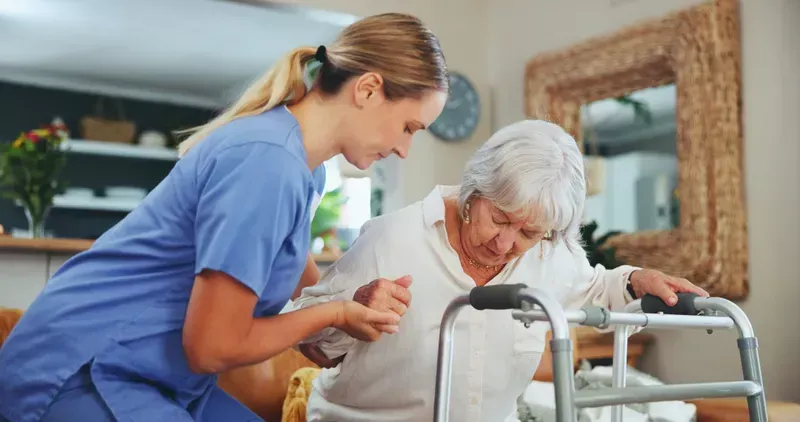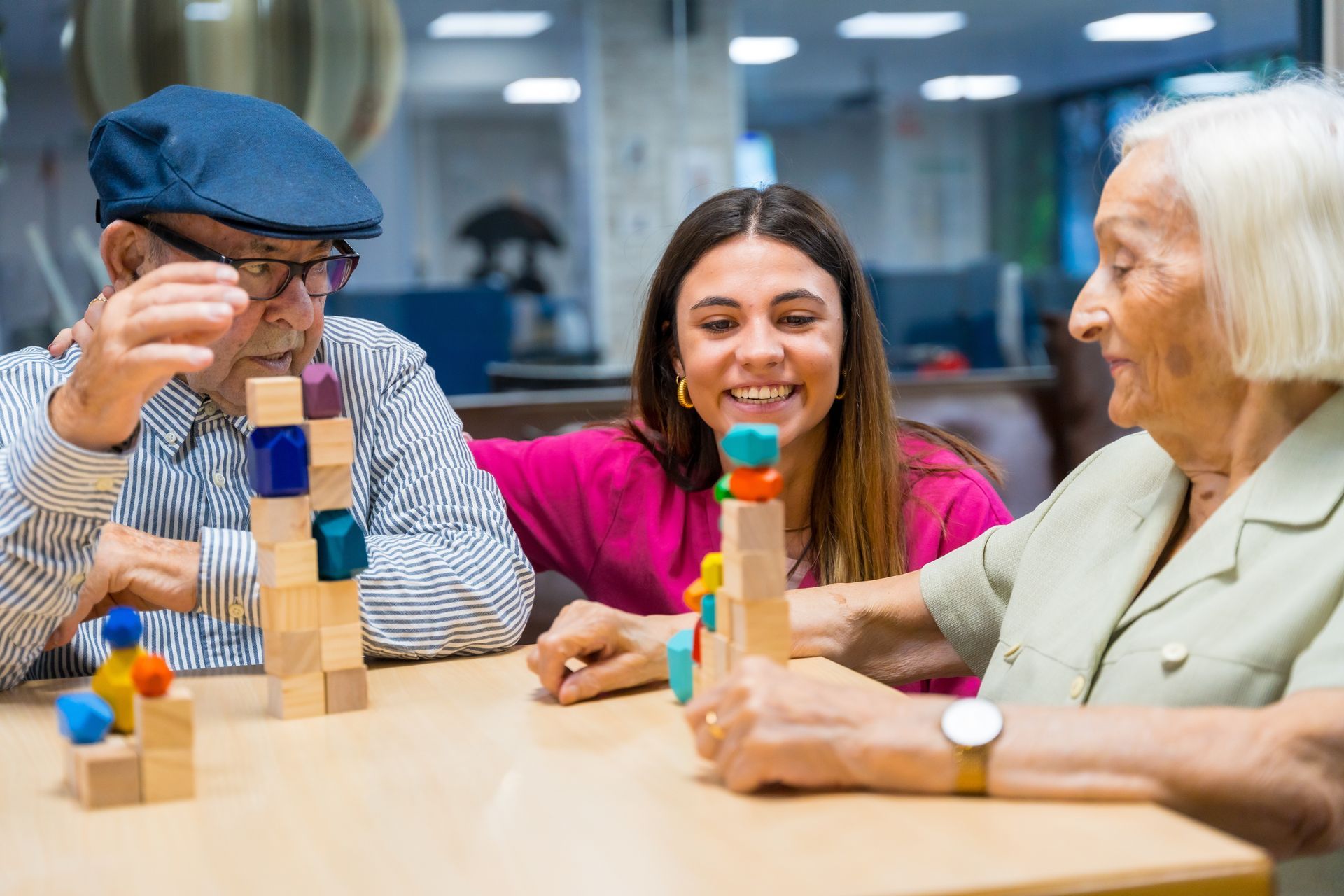BLOG
Navigating Life Transitions After Brain Injury
Brain injuries can drastically alter a person's life, impacting their physical abilities, cognitive functions, and emotional well-being. These changes may feel overwhelming for seniors, as established routines and independence are often disrupted. Navigating life transitions after a brain injury requires a structured approach and consistent support from healthcare professionals, caregivers, and family members.
Seniors recovering from brain injuries often face additional challenges, including managing preexisting health conditions and adapting to age-related changes. Tailored care and rehabilitation plans are essential to ensure recovery and improved quality of life.
The Challenges of Life Transitions
Life transitions after a brain injury can feel daunting due to the significant physical and cognitive changes involved. Mobility limitations often require modifications in living environments, such as ramps, grab bars, or other accessibility features. Seniors may also struggle with mental tasks, such as memory retention or decision-making, which can complicate daily activities.
Social relationships can become strained as loved ones adapt to the survivor’s new needs and limitations. Friends and family may unintentionally distance themselves, leading to feelings of isolation. Understanding the emotional toll of these transitions is vital to providing adequate support during recovery.

Financial challenges often arise due to medical bills, rehabilitation costs, and changes in employment or retirement plans. Seniors and their families may need to reassess financial priorities and explore available resources for assistance. Planning for these transitions early can reduce stress and allow for smoother adjustments.
Lastly, dealing with the uncertainty of recovery outcomes can be emotionally exhausting. Brain injuries vary significantly in severity, making it difficult to predict the extent of long-term effects. A clear communication plan between caregivers, medical professionals, and family members is essential for setting realistic expectations.
The Role of Rehabilitation in Navigating Transitions
Rehabilitation is central in helping seniors manage life transitions following a brain injury. Physical therapy helps improve mobility, strength, and balance, enabling individuals to regain independence in daily activities. Therapists often design personalized exercise regimens considering the survivor's unique challenges and goals.
Cognitive rehabilitation is equally important. It focuses on rebuilding skills like memory, problem-solving, and attention. Memory exercises and organizational strategies can enhance mental functions and foster confidence in handling daily tasks.
Occupational therapy helps seniors adapt to new routines and relearn essential skills for daily living. These therapies focus on cooking, grooming, and using assistive devices. Practical solutions offered during treatment can ease the transition to a new lifestyle.
Speech therapy can address communication difficulties, common after a brain injury. Seniors may struggle with language processing or articulation, impacting their ability to express needs and emotions. Speech therapists work closely with patients to restore these vital skills and improve their quality of life.
Building Emotional Resilience During Life Transitions
Emotional resilience is critical for seniors as they navigate life transitions after a brain injury. Depression and anxiety are common among survivors, often stemming from feelings of loss and uncertainty. Recognizing these emotions early and seeking professional help can significantly improve mental health outcomes.
Therapeutic support, such as counseling or group therapy, can provide a safe space for seniors to express feelings and learn coping strategies. Group settings also allow seniors to connect with others who share similar experiences, reducing feelings of isolation.
Mindfulness practices like meditation or breathing exercises can help seniors manage stress and focus on recovery goals. These techniques encourage a sense of control and calmness during overwhelming moments.
Family involvement plays a crucial role in building emotional resilience. Open communication and patience from loved ones foster a supportive environment that strengthens the survivor’s confidence. Families can also benefit from counseling to better understand survivors' needs and challenges.
Adapting Living Environments for a Smooth Transition
Adjusting the living environment is essential for seniors recovering from brain injuries. Safety modifications can prevent accidents and provide survivors and their caregivers with peace of mind. Common changes include installing handrails, widening doorways, and removing tripping hazards.

Accessible housing options, such as single-level homes or senior living facilities, may offer the most practical solutions for long-term recovery. These environments are often designed to accommodate mobility challenges and other physical limitations.
Technology can significantly enhance safety and independence. Smart home devices, such as voice-activated assistants and emergency alert systems, can assist seniors with daily tasks and provide quick access to help.
Finally, creating a comfortable and personalized living space can promote emotional well-being. Incorporating familiar items, such as family photos or cherished belongings, helps maintain a sense of identity and comfort during the transition.
Leveraging Community Support Systems
Community resources are invaluable for seniors navigating life transitions after a brain injury. Local support groups provide a platform for sharing experiences, advice, and encouragement with others in similar situations. These connections can reduce feelings of isolation and foster a sense of belonging.
Community rehabilitation centers often offer specialized programs for brain injury survivors, including physical therapy, occupational therapy, and counseling. These services complement in-home care and ensure a well-rounded recovery plan.
Nonprofit organizations and government programs may provide financial assistance, transportation services, or access to assistive devices. Families should explore available resources to ease the financial and logistical challenges of recovery.
Volunteering opportunities and recreational programs help seniors reengage with their communities. Activities such as gardening, art classes, or book clubs encourage social interaction and create a sense of purpose during recovery.
Embrace Stability and Recovery With the Right Partner
Navigating life transitions after a brain injury requires comprehensive support tailored to the survivor’s unique needs. Each element, from rehabilitation therapies to emotional resilience strategies, contributes to a smoother transition and improved quality of life. Adapting living environments and leveraging community resources further enhance recovery and stability.
At Assured Senior Living, we specialize in providing personalized care and supportive environments for seniors recovering from brain injuries. Our expert team is committed to ensuring a smooth transition for every resident. Contact us today to learn how we can help you or your loved one navigate life transitions with confidence and care.















